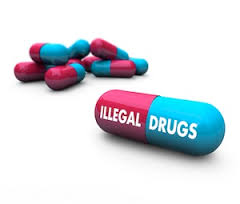In Tennessee, controlled substances, or drugs, are categorized based on a number of factors including risk of dependency, and whether or not they have any legitimate medical use. The  federal government classifies controlled substances into several schedules. Most states, including Tennessee, adopted these schedules, making minor adjustments. The following is how controlled substances are classified in Tennessee as well as examples of drugs included in each category.
federal government classifies controlled substances into several schedules. Most states, including Tennessee, adopted these schedules, making minor adjustments. The following is how controlled substances are classified in Tennessee as well as examples of drugs included in each category.
Schedule I drugs include those controlled substances that are the most dangerous and have a high risk of addiction or dependency and no legitimate medical use. Drugs included in this category are LSD, heroin, ecstasy (MDMA, “Molly”) mescaline, and psychedelic mushrooms.
Schedule II drugs still have a high risk of abuse like Schedule I but may have legitimate medical uses. Drugs included in this category are opium, cocaine, methadone, methamphetamines, and amphetamines.
Schedule III drugs have a moderate risk of abuse. They also are slightly less dangerous than Schedule II controlled substances. Drugs included in this category are anabolic steroids, testosterone, ketamine, and some depressants.
Schedule IV drugs have a slight risk of dependency and have very acceptable medical uses. Drugs included in this category are are clonazepam, tranquilizers, and sedatives.
Schedule V drugs are controlled substances that have a very low risk of dependency and include drugs like Tylenol with Codeine.
Schedule VI drugs includes marijuana, which is thought to have a very low risk of physical dependency as well as thought by some to have medicinal properties. There are currently twenty-three states where medical marijuana is available and five states where cannabis has been decriminalized making it available for legal purchase. However, marijuana is illegal in the state of Tennessee.
Schedule VII includes Butyl Nitrate (also called poppers) which is an inhalant or breathable substances that produce psychoactive vapors.
If you are facing any drug charge in Tennessee, it is important that you have an experienced criminal defense attorney who understands the complexities of drug crimes and possible sentencing. There are many factors to consider when analyzing a drug offense including the type of drug, location of the arrest, whether the drugs were intended for personal consumption or for sale, as well as if law enforcement procured the drugs through unlawful search and seizure. If you have been charged with a drug crime, contact attorney Donna Wagner for a consultation.

